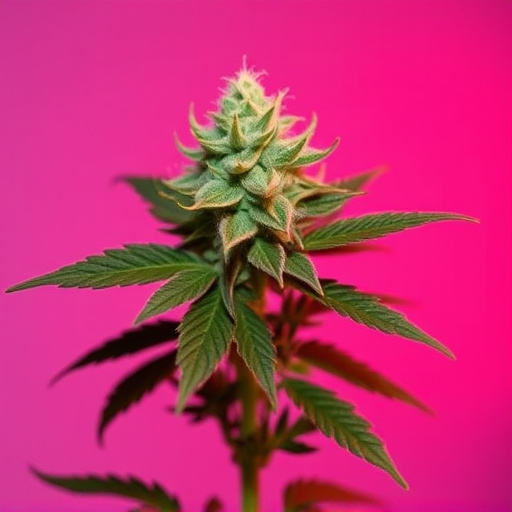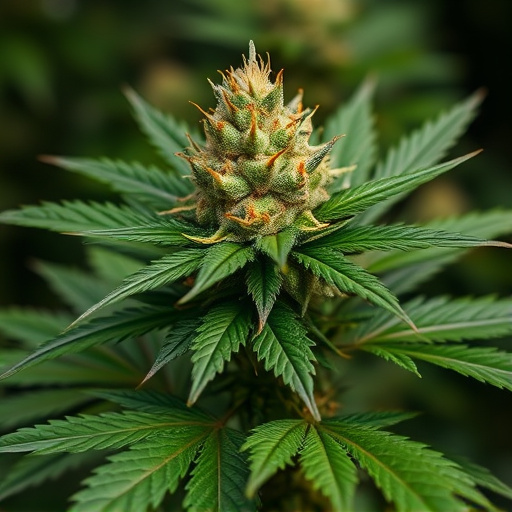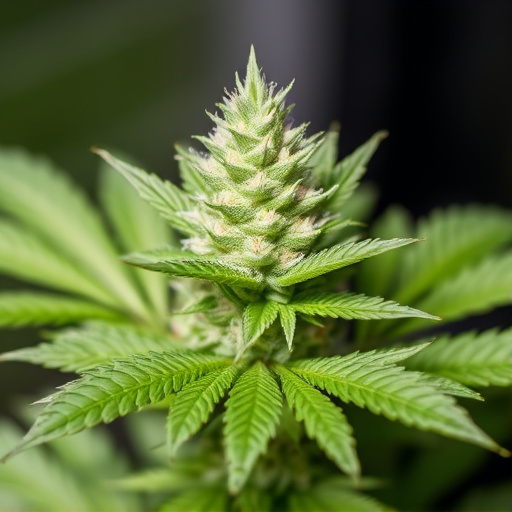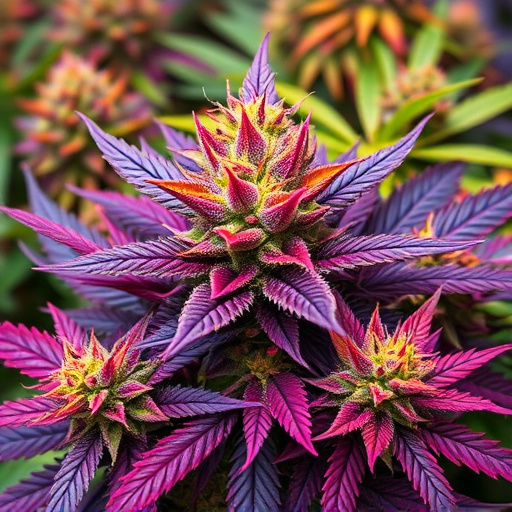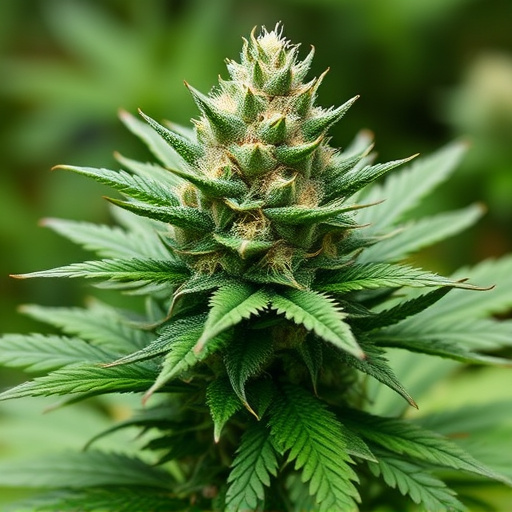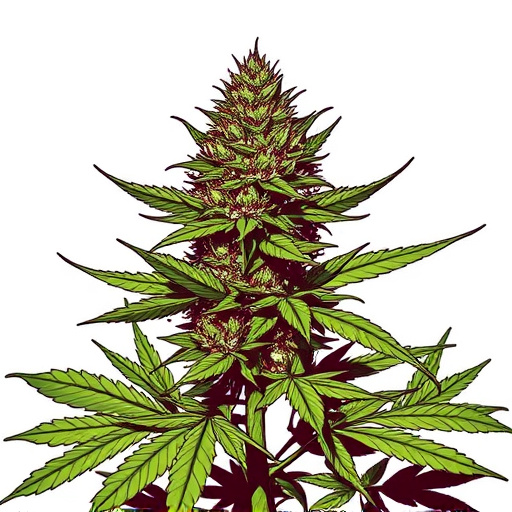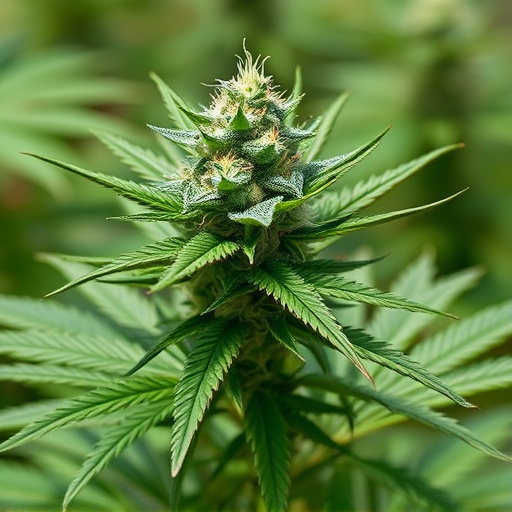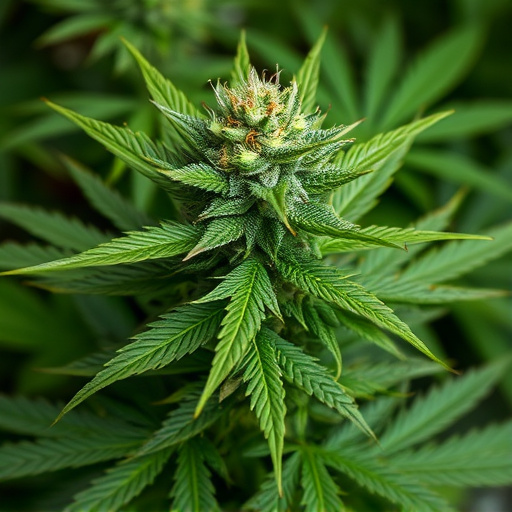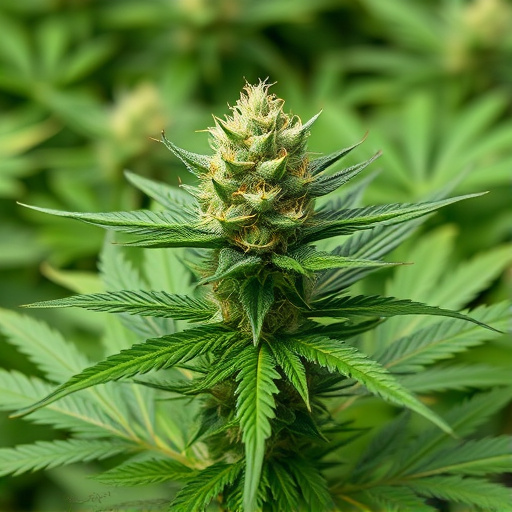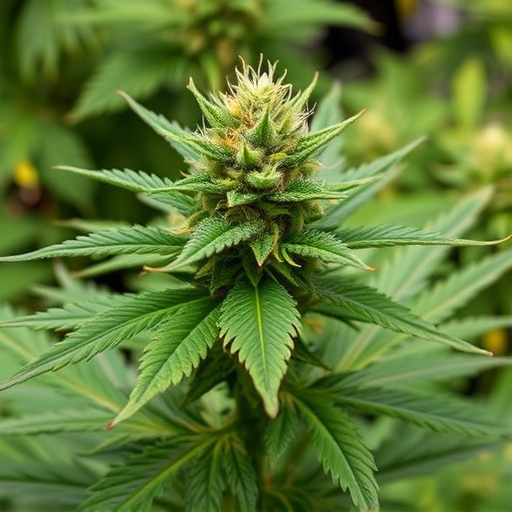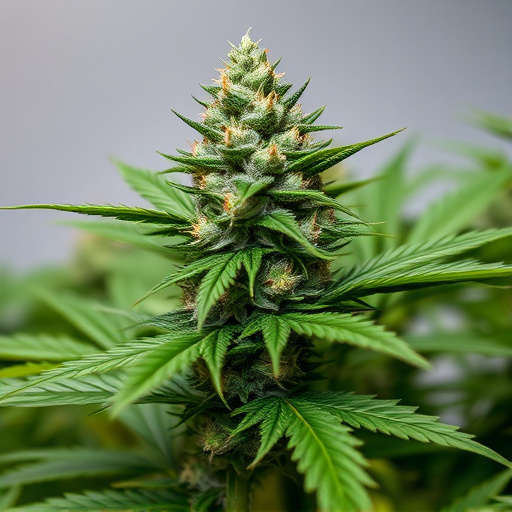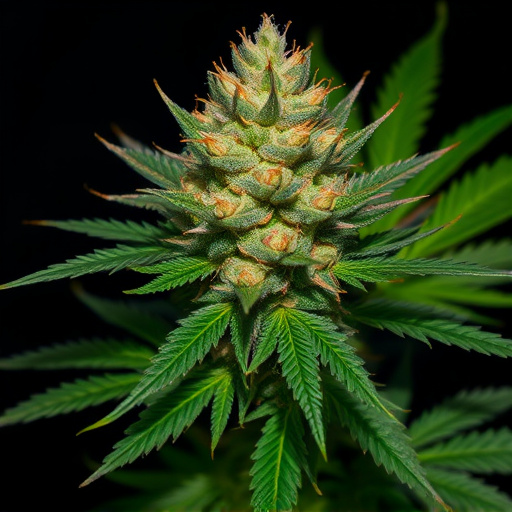Cannabis flowers contain a complex mix of terpenes, cannabinoids, and other chemical compounds that interact with the body's endocannabinoid system (ECS) to regulate various functions. Notable compounds like THC (tetrahydrocannabinol) have psychoactive effects but also show potential in treating mental health disorders such as anxiety, depression, and PTSD. Strong cannabis strains, bred for high concentrations of specific cannabinoids and terpenes, offer alternative therapeutic treatments. Indica varieties are known for their relaxing effects on anxiety and sleep, while Sativa strains boost mood and alleviate depression symptoms. As the legal landscape shifts, personalized medicine using strong cannabis strains could become more accessible, but further research is needed to understand their long-term effects and variability among different strains.
Can cannabis flower be a game-changer in mental health management? With growing interest in its therapeutic potential, understanding the role of cannabis compounds is crucial. This article delves into how specific compounds interact with our bodies, exploring promising signs for conditions like anxiety and depression. We examine the potential of strong cannabis strains, focusing on their unique chemical profiles and targeted benefits. Considerations and future research directions round out this comprehensive look at cannabis’ evolving role in mental health care.
- Understanding Cannabis Compounds and Mental Health Benefits
- Exploring Strong Cannabis Strains for Specific Mental Health Conditions
- Considerations and Future Research Directions
Understanding Cannabis Compounds and Mental Health Benefits
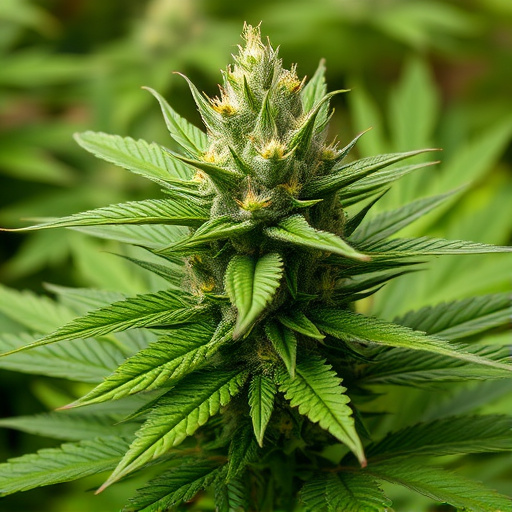
Cannabis flowers contain a complex mix of chemical compounds, with terpenes and cannabinoids being the most well-known. These compounds interact with our bodies’ endocannabinoid system (ECS), which plays a significant role in regulating mood, appetite, pain sensation, and memory. One of the key cannabinoids in cannabis is THC (tetrahydrocannabinol), known for its psychoactive effects, but also for its potential to alleviate symptoms associated with mental health disorders. Research suggests that THC may help reduce anxiety, depression, and even post-traumatic stress disorder (PTSD) in some individuals.
Strong cannabis strains, rich in specific cannabinoids and terpenes, have gained attention for their therapeutic properties. Certain strains are bred for higher concentrations of CBD (cannabidiol), another important cannabinoid. CBD is non-psychoactive but has shown promise in treating anxiety, epilepsy, and inflammation. Understanding the unique profiles of different cannabis strains and their interaction with the ECS can help individuals make informed choices when exploring alternative treatments for mental health conditions.
Exploring Strong Cannabis Strains for Specific Mental Health Conditions
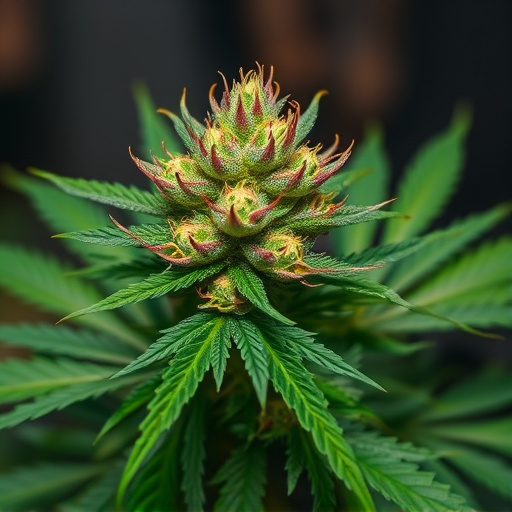
Cannabis, with its diverse chemical makeup, offers a promising avenue for exploring treatments for various mental health conditions. Among the many compounds, strong cannabis strains containing high levels of THC and CBD have garnered significant attention for their potential therapeutic effects. For instance, indica strains, known for their relaxing and sedative properties, can be beneficial for managing anxiety and promoting better sleep. Sativa varieties, rich in THC, may uplift mood and alleviate symptoms of depression.
Different mental health conditions might require specific strong cannabis strains to achieve optimal results. Researchers are uncovering the potential for these natural compounds to interact with our endocannabinoid system, offering a unique approach to mental wellness. As the legal status of cannabis continues to evolve, further studies can facilitate personalized medicine using strong cannabis strains to address specific mental health challenges.
Considerations and Future Research Directions
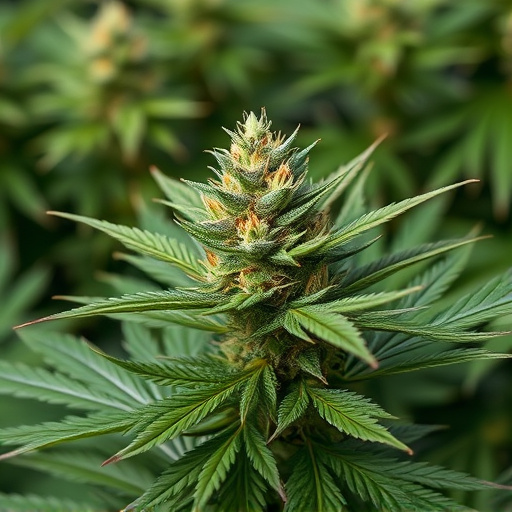
As the conversation around cannabis legalisation continues to evolve globally, understanding its impact on mental health is a crucial step. While preliminary studies suggest potential benefits for specific conditions, such as chronic pain and anxiety, more research is needed to explore the effects of different strong cannabis strains on mental well-being. Future studies should focus on identifying active compounds within cannabis that may have therapeutic value, and how these interact with various mental health disorders.
Additionally, investigating the long-term effects of regular cannabis use is essential. Understanding the potential risks and benefits for different populations, especially younger individuals whose brains are still developing, will provide a more comprehensive picture. This includes exploring whether specific strong cannabis strains may be more beneficial or harmful than others and how individual genetics play a role in determining these outcomes.
While cannabis flower shows promise in potentially improving mental health, it’s crucial to approach its use with caution. The diverse compounds in cannabis, including THC and CBD, offer varying levels of benefit for different conditions. Exploring specific strong cannabis strains can provide tailored relief, but further research is needed to fully understand their efficacy and safety. Always consult healthcare professionals before incorporating cannabis into your mental health regimen.

